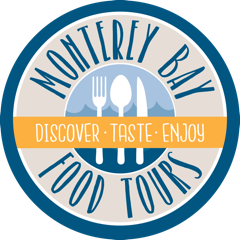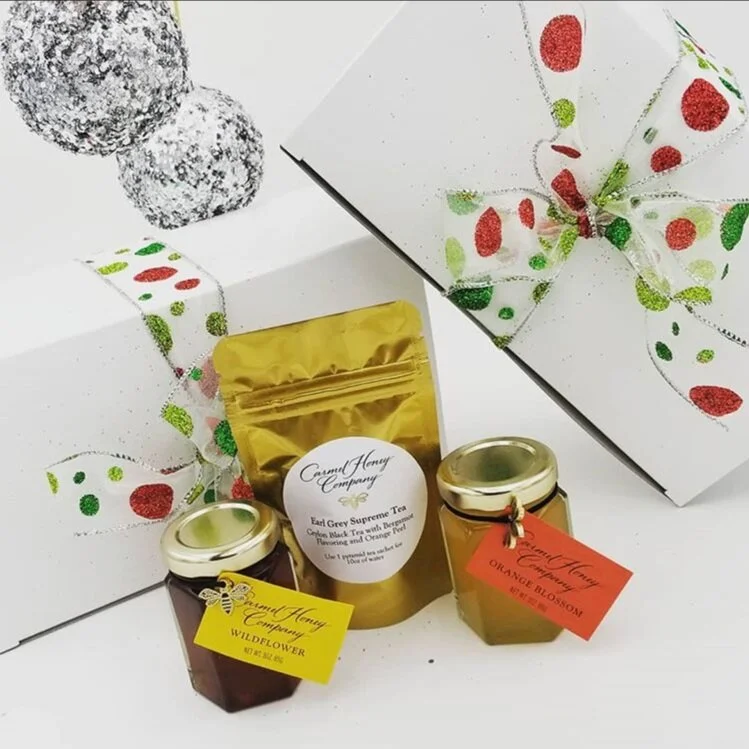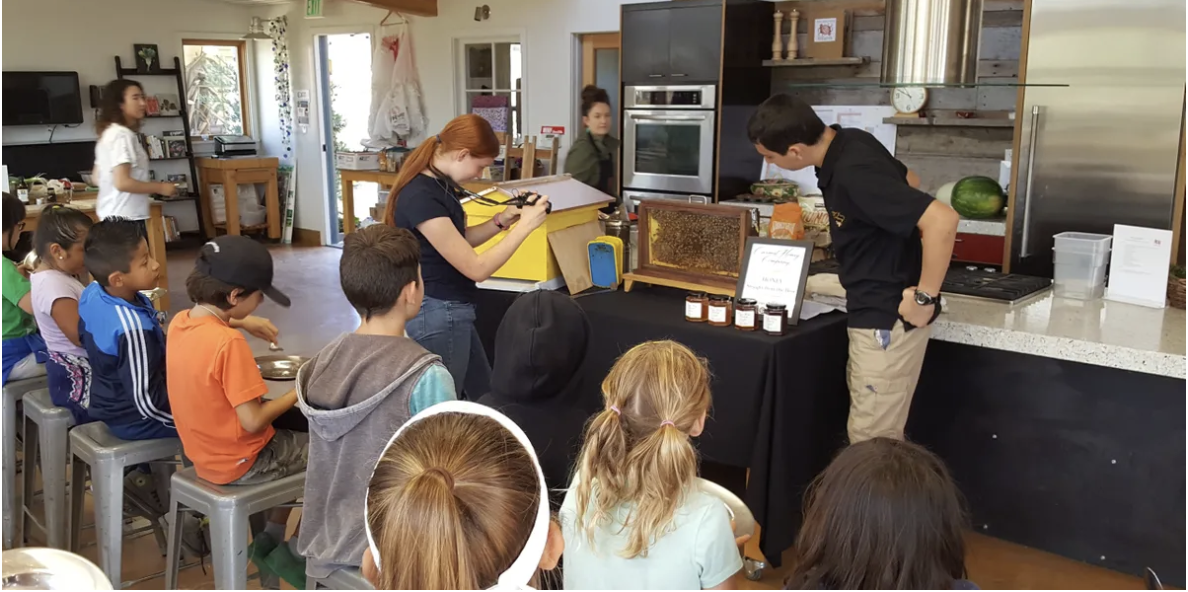Carmel Honey Company Takes Honey-Making to the Next Level
Have you ever wanted your own company? The title “CEO” holds an immense amount of power, and a lot of people could hardly even dream of owning a company with two physical locations, winning awards and startup challenges, getting features in the New York Times, and seeing only expansion on the horizon. The idea to some is so unfathomable, but not to Jake Reisdorf of Carmel Honey Company. He has an entire brand under his belt already, and he’s only 17 years old!
Image courtesy of Carmel Honey Company
We’re so fortunate to have added the Carmel Honey Company to our list of tour partners, and we’re happy to feature them on our Local Seafood Food Tour. We had the chance to sit down with Jake and pick his brain a little about how he manages to run an expanding company before he’s even snagged a high school diploma.
Learning How to Keep Bees
Some would say the development of this business was a twist of fate, and the stars certainly smiled on Jake when they planned out the course of his life.
After attending a beekeeper’s course and raising his initial interest in the subject, Jake entered into the 5th grade and had a career assignment handed to him that he didn’t necessarily expect: That of a web designer.
“I was a bit confused when I first got that, because I didn’t really know what a web designer did,” says Jake. After a little research into the makings of a website and purchasing a domain on GoDaddy.com, he says, “I decided to take the project a little above and beyond and actually create a website.”
Taking the information he’d learned from his beekeeper’s course, Jake designed a website and a small social media page about honey, and when he showed it off to his friends, he found himself in something of a predicament — they wanted to know where they could buy this honey.
Developing a Honey-Flavored Business
This interest sparked an idea, and it wasn’t long before Jake started out with a hive and bees of his own — and, now that his business has evolved into what it has, he’s tending to 175 hives.
“Bees aren’t like dogs or cats or your normal household animal,” Jake explains. “There are 40-60,000 bees per hive, and you can’t just tell them all to sit and behave. You need to learn responsibility for that, and I really wanted to make sure I knew what I was doing.”
He began developing honey for purchase on a small-scale, but after attending multiple conferences and discovering there were nearly 400 varietals of honey in the US alone, Jake interviewed other beekeepers and moved bees into different areas to begin collecting for the varietals of honey they now offer — the wildflower (their first), orange blossom, meadowfoam, and sage.
His research and the honey he produced also garnered him an award we share together — the Startup Challenge Monterey Bay! Winning that helped Jake open his first physical location in the Carmel Plaza, with their second location on Cannery Row having just opened December 2019.
What’s So Important About Bees?
Did you think bees only stick to flowers and only make honey from there?
Well, you, like me, would be very wrong.
Turns out, bees actually pollinate 1/3 of the food we eat, and can pollinate anything from apples to zucchinis and the whole alphabet in between.
“A lot of people don’t realize what bees actually do for us. They’re not the bad guys that sting you all the time,” says Jake.
Bees are certainly smarter than we often think, and everything about their life is regimented. When it comes to honey, a bees fly within a 5 mile radius of the hive, and they have to collect 80-90% of a specific nectar source to be considered a specific varietal (like the orange blossom.) If there are multiple, that’s when you get into a name like “wildflower” that encompasses lavender, eucalyptus and other flowers they’re pulling the pollen from.
Giving Back to the Community
If you’re interested in learning about bees — especially if you’re a teacher looking for a speaker in your classroom — look into the Jake Gives Back program. Education is something that’s important to Jake, and he wanted a core aspect of the business to focus on touching and educating people in the community.
Image courtesy of Carmel Honey Company
A portion of the proceeds every year go to honey bee research and education.
In the coming years, the sky’s the limit for what Jake and his family can do.
“I have a great team behind me,” he insists. “I look forward to continuing learning and pushing and moving forward with the honey industry.”
If luck plays out for him — which it has so far — he’d also like to build an interactive, high-tech facility for pollinators that would be similar to an aquarium-type museum, but all about pollen from birds, bats, and all sorts of other animals besides bees.
In the meantime, you can sample their honey on our Local Seafood Food Tour, or visit one of their shops to purchase some for yourself.












